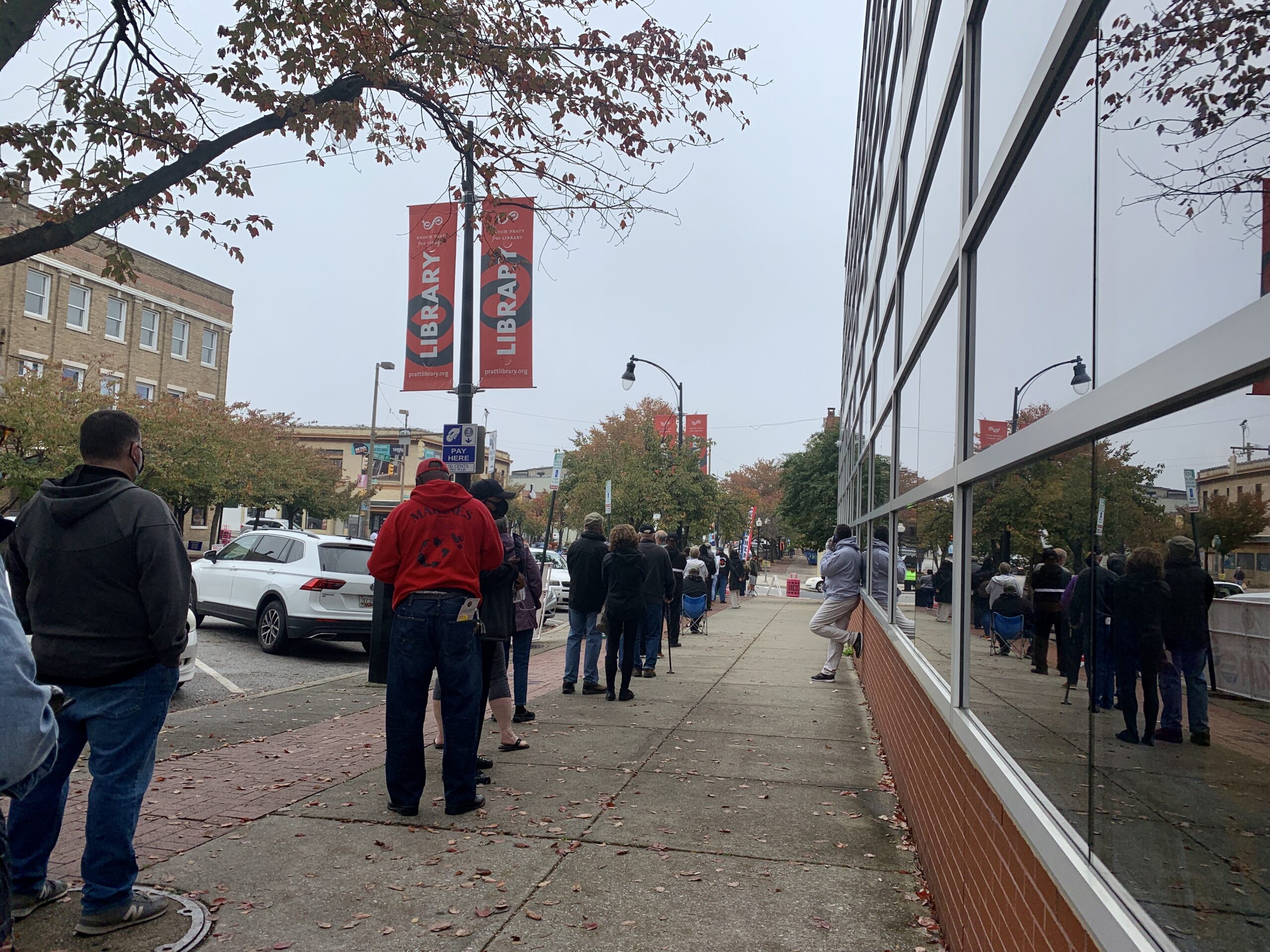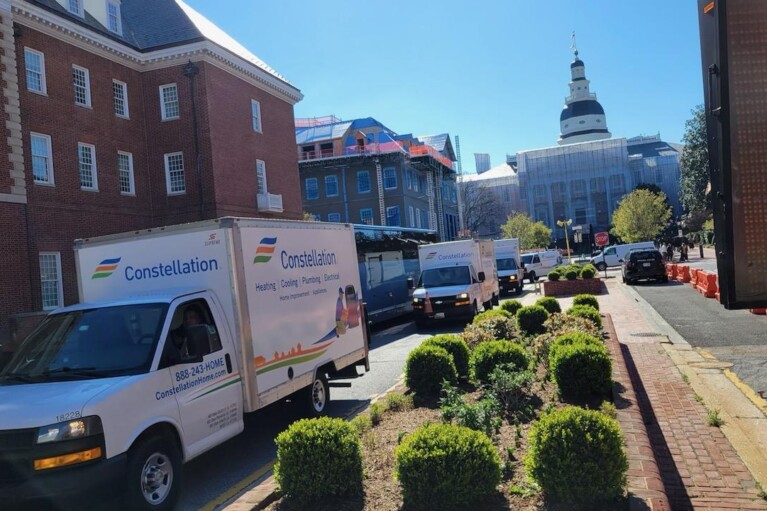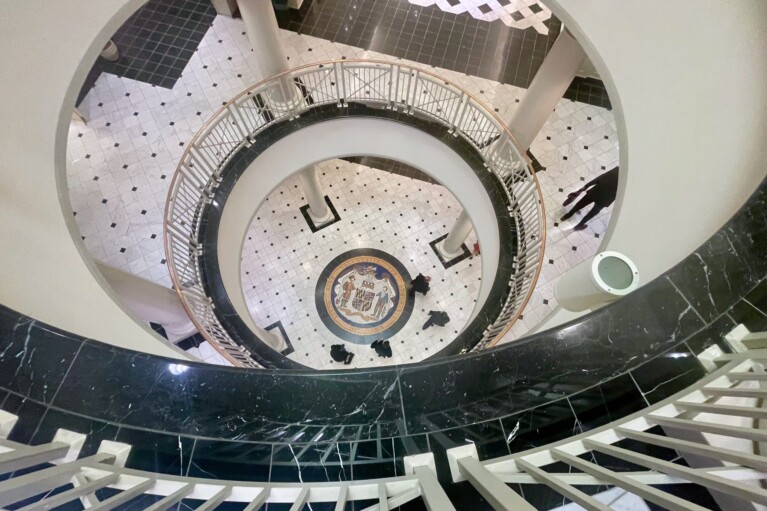Senate Panel Gives Nod to Expansion of Early Voting Centers

The Senate Education, Health and Environmental Affairs Committee advanced a proposal Friday to expand the number of early voting centers in the state for future elections.
House Bill 745, sponsored by House Majority Leader Eric G. Luedtke (D-Montgomery), would increase the number of early voting centers required in counties based on the number of registered voters in those jurisdictions.
Under the state’s current law, counties with less than 125,000 voters are required to have just one early voting center; counties with between 125,000 and 200,000 are required to have three early voting centers; counties with 200,000 to 300,000 voters are required to have four early voting centers; counties with 300,000 to 450,000 are required to have seven early voting centers; and counties with more than 450,000 registered voters are required to have 11 early voting centers.
Luedtke’s bill would broaden that formula, and require that counties:
- With less than 50,000 registered voters have one early voting center;
- With 50,000 to 100,000 registered voters have two early voting centers;
- With 100,000 to 200,000 registered voters have three early voting centers;
- With 200,000 to 300,000 registered voters have five early voting centers;
- With 300,000 to 400,000 registered voters have seven early voting centers;
- With 400,000 to 500,000 registered voters have nine early voting centers;
- With 500,000 to 600,000 registered voters have eleven early voting centers;
- And with more than 600,000 registered voters have 13 early voting centers.
Counties are able to set up one additional early voting center if needed under both current law and the bill. The bill also requires local election boards to consider, when determining the location of early voting centers, such factors as accessibility to historically disenfranchised communities and ensuring that voting centers are distributed in an “equitable” way throughout the county.
The fair distribution of early voting centers was an issue in Maryland during the 2020 general election, with Del. Brian Crosby (D-St. Mary’s) calling the lack of a second early voting center in his county “voter suppression.” In Luedtke’s home county, White Oak residents have appealed to Montgomery County and state elections officials for years to add an early voting center in the majority-minority neighborhood.
“Over the last year, the pandemic forced us to rethink a lot about our elections,” Luedtke told committee members during a Thursday hearing on the bill. “And one of the lessons that at least I learned, in interacting with my constituents, was that voters like options.”
The Senate panel approved Luedtke’s early voting formula overhaul with an 8-2 vote. Senate Minority Leader Bryan W. Simonaire (R-Anne Arundel) abstained from the vote, and his Republican colleagues Sen. Mary Beth Carozza (R-Lower Shore) and Sen. Jason C. Gallon (R-Harford and Cecil) objected to the bill because of its anticipated price tag for local boards of elections.
The bill is projected to cost local governments $830,000 annually starting in the 2022 fiscal year, $900,000 in the 2024 fiscal year, and $1.1 million in 2026, according to a Department of Legislative Services analysis of the bill.
Gallion worried that, along with proposals to permanently expand mail-in voting, the state might be putting an “extra burden” on local governments. Carozza echoed Gallion’s worry about the extra cost for local governments and said local boards of elections in her district opposed the bill.
Democrats on the panel acknowledged the additional cost to local governments – but said the money is well worth it to increase voter access to the ballot. Early voting was a popular option amongst voters in the state during the socially distanced 2020 elections, along with absentee ballots and drop-off boxes.
“The responsibility to ensure that we maximize participation is worth the cost to save our democracy,” Sen. Mary L. Washington (D-Baltimore City) said.
And the bill’s requirement that local boards consider accessibility and other factors like proximity to densely populated areas when selecting early voting centers is currently missing from Maryland law, Sen. Cheryl C. Kagan (D-Montgomery County) said in supporting the bill.
Committee Chairman Paul G. Pinsky (D-Prince George’s) said the measure falls in line with the legislature’s goal of expanding the state’s electorate and making voting easier and more accessible for Marylanders.
“I think if we’re going to try to expand the electorate, this is exactly what we need to do,” Pinsky said.




 Creative Commons Attribution
Creative Commons Attribution